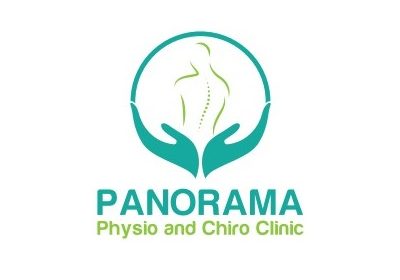Insomnia and Hormonal Imbalances: Understanding the Link
Overview
- Condition: New
Features:
- If you suspect hormonal imbalances are affecting your sleep, it is essential to seek professional medical advice for accurate diagnosis and tailored treatment plans.
Description
Insomnia, a prevalent sleep disorder, affects millions of people worldwide. Characterized by difficulty falling asleep, staying asleep, or waking up too early, insomnia can significantly impact daily life, leading to fatigue, mood disturbances, and decreased cognitive function. While various factors contribute to insomnia, hormonal imbalances play a crucial role in its development and persistence. This article explores the intricate relationship between insomnia and hormonal imbalances, shedding light on how hormones influence sleep patterns and what can be done to address these issues.
Understanding Hormones and Their Functions
Hormones are chemical messengers produced by glands in the endocrine system. They travel through the bloodstream to tissues and organs, regulating various bodily functions, including metabolism, growth, mood, and sleep. Key hormones involved in sleep regulation include melatonin, cortisol, estrogen, progesterone, and thyroid hormones.
- Melatonin: Often referred to as the sleep hormone, melatonin is produced by the pineal gland in response to darkness. It helps regulate the sleep-wake cycle by signaling to the body that it is time to sleep.
- Cortisol: Known as the stress hormone, cortisol is produced by the adrenal glands. Its levels typically peak in the morning to help wake us up and decrease throughout the day, reaching their lowest at night. However, chronic stress can lead to elevated cortisol levels, disrupting sleep.
- Estrogen and Progesterone: These sex hormones, primarily involved in reproductive functions, also influence sleep. Fluctuations in estrogen and progesterone levels during the menstrual cycle, pregnancy, and menopause can affect sleep quality.
- Thyroid Hormones: Thyroid hormones regulate metabolism. An imbalance, such as hypothyroidism or hyperthyroidism, can disrupt sleep patterns.
How Hormonal Imbalances Affect Sleep
Melatonin and Circadian Rhythms
Melatonin production is influenced by the light-dark cycle. Exposure to light, particularly blue light from screens, can inhibit melatonin production, making it difficult to fall asleep. Conversely, darkness stimulates melatonin release, promoting sleep. A disruption in melatonin production, such as due to shift work or jet lag, can lead to insomnia.
Cortisol and Stress
Cortisol follows a diurnal rhythm, peaking in the morning and declining at night. Chronic stress, however, can cause consistently high cortisol levels, disrupting this natural rhythm. Elevated cortisol levels at night can prevent the body from winding down, leading to difficulty falling asleep and frequent awakenings.
Estrogen, Progesterone, and Reproductive Health
Women often experience sleep disturbances related to hormonal fluctuations throughout their reproductive lives. During the menstrual cycle, progesterone levels rise after ovulation, promoting sleep. However, if progesterone levels drop significantly before menstruation, sleep disturbances can occur.
Pregnancy also brings significant hormonal changes. Increased levels of progesterone can cause excessive daytime sleepiness, while physical discomfort and frequent urination can disrupt sleep at night. Postpartum, the sudden drop in progesterone and estrogen levels can lead to insomnia.
Menopause is another critical period for women’s sleep health. Declining estrogen levels can cause hot flashes and night sweats, leading to sleep interruptions. Additionally, lower estrogen levels are associated with reduced melatonin production, further exacerbating sleep difficulties.
Thyroid Hormones and Metabolism
Thyroid hormones play a vital role in regulating metabolism. Hyperthyroidism, characterized by excessive thyroid hormone production, can cause symptoms such as anxiety, increased heart rate, and restlessness, making it difficult to fall asleep. Hypothyroidism, on the other hand, involves insufficient thyroid hormone production and can lead to fatigue and excessive daytime sleepiness, disrupting the sleep-wake cycle.
Identifying Hormonal Imbalances
Diagnosing hormonal imbalances involves a combination of symptom assessment, medical history, and laboratory tests. Common tests include blood tests to measure levels of thyroid hormones, cortisol, estrogen, and progesterone. Saliva and urine tests may also be used to evaluate hormone levels at different times of the day or month, providing a more comprehensive picture of hormonal fluctuations.
Managing Insomnia Related to Hormonal Imbalances
Addressing insomnia caused by hormonal imbalances involves a multi-faceted approach, including lifestyle modifications, medical treatments, and alternative therapies.
Lifestyle Modifications
- Sleep Hygiene: Establishing good sleep hygiene is crucial. This includes maintaining a consistent sleep schedule, creating a comfortable sleep environment, and avoiding stimulants like caffeine and nicotine close to bedtime.
- Stress Management: Techniques such as mindfulness, meditation, and yoga can help manage stress and lower cortisol levels, promoting better sleep.
- Diet and Exercise: A balanced diet and regular exercise can support hormonal balance. Foods rich in omega-3 fatty acids, magnesium, and vitamin D can be particularly beneficial.
- Light Exposure: Limiting exposure to artificial light, especially blue light from screens, in the evening can support melatonin production. Conversely, getting natural sunlight during the day can help regulate the sleep-wake cycle.
Medical Treatments
- Hormone Replacement Therapy (HRT): For women experiencing sleep disturbances related to menopause, HRT can help balance estrogen and progesterone levels, reducing symptoms such as hot flashes and night sweats.
- Thyroid Medications: For those with thyroid imbalances, medications to normalize thyroid hormone levels can improve sleep. This may include synthetic thyroid hormones for hypothyroidism or antithyroid medications for hyperthyroidism.
- Melatonin Supplements: In cases of disrupted melatonin production, melatonin supplements can help regulate the sleep-wake cycle. It is essential to use these under medical supervision to ensure proper dosing and timing.
Alternative Therapies
- Acupuncture: Some studies suggest that acupuncture can help regulate hormone levels and improve sleep quality.
- Herbal Remedies: Herbal supplements such as valerian root, chamomile, and passionflower have been traditionally used to promote sleep. However, it is essential to consult with a healthcare provider before using these, as they can interact with other medications.
- Cognitive Behavioral Therapy for Insomnia (CBT-I): CBT-I is a structured program that helps individuals identify and change thoughts and behaviors contributing to insomnia. It is considered one of the most effective treatments for chronic insomnia.
Conclusion
Insomnia is a complex condition with multiple contributing factors, including hormonal imbalances. Understanding the link between hormones and sleep can help identify the root cause of sleep disturbances and guide appropriate treatment. By addressing hormonal imbalances through lifestyle changes, medical treatments, and alternative therapies, individuals can improve their sleep quality and overall well-being.








Leave feedback about this
You must be logged in to post a review.